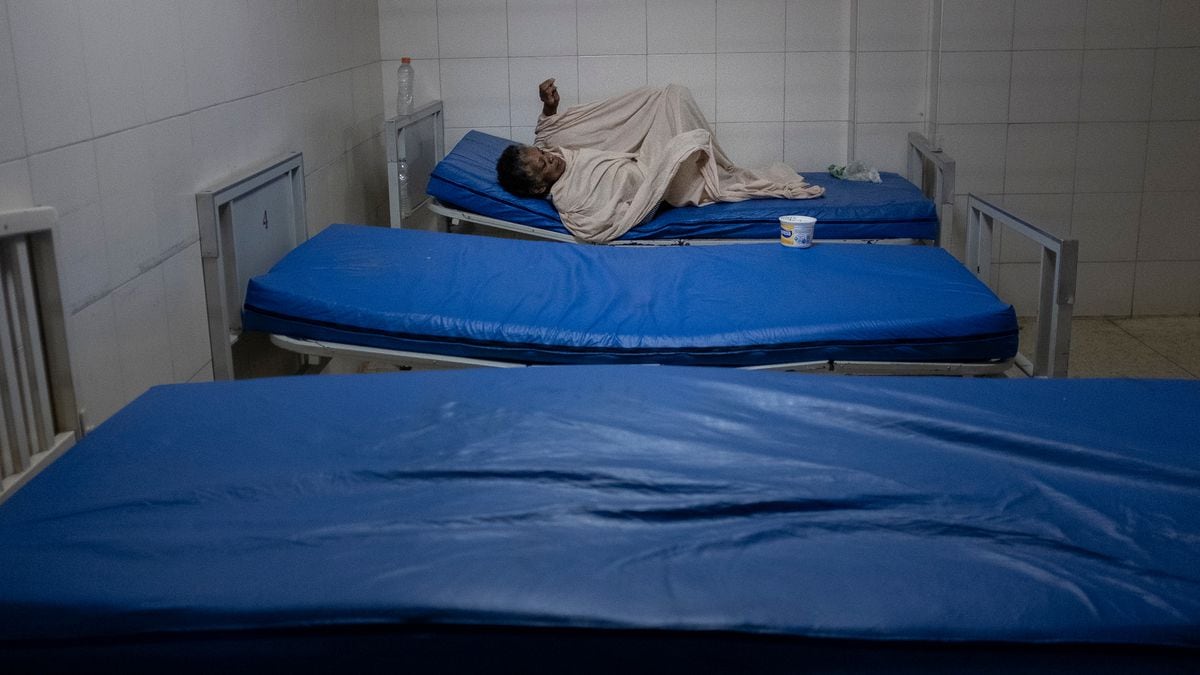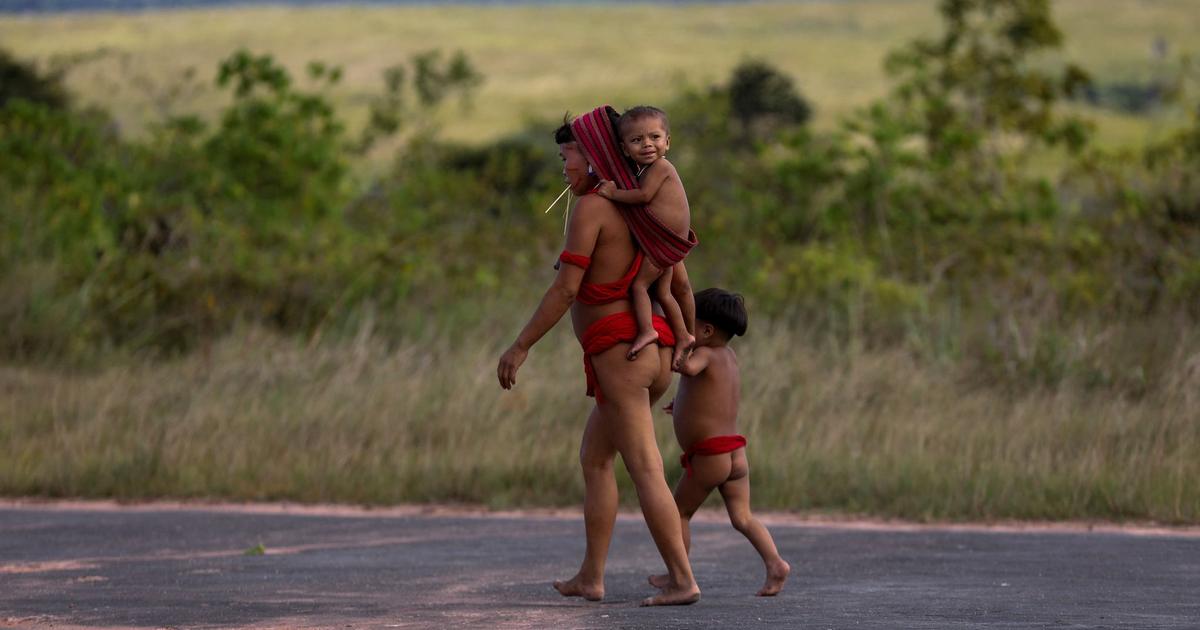04/25/2021 12:01 PM
Clarín.com
World
Updated 04/25/2021 12:01 PM
Luz Martínez contracted malaria three times in
Venezuela
, the last when she was six months pregnant with her fourth daughter, in a poor neighborhood where this disease, also called
malaria
, is
more common than covid-19
.
He lives in Los Montones, a community of dusty streets on the outskirts of the city of Barcelona (in the Anzoátegui state, east of the country), where they fear this evil more than the coronavirus pandemic, which overflowed hospitals in this country.
"There is a lot of plague here and the power goes out a lot. Thank God we have taken treatment," says Martinez, 30, used to the
clouds of mosquitoes that usually invade her house with a sandy floor
shortly before nightfall.
In addition to her, two of her children also caught malaria.
"There is a lot of malaria," adds this woman while breastfeeding her baby, who was born prematurely due to her latest infection.
Crisis and illness
Venezuela was the first country to eradicate malaria in 1961, but in the last decade it has seen
an alarming explosion of this disease transmitted by the anopheles mosquito
.
"There are people who have had malaria between 15 and 20 times," remarks Leonardo Vargas, a community activist in the sector, who participates in a case-finding event organized by the NGO Doctors Without Borders (MSF) and local authorities.
Venezuela has not published official figures
since 2016, when it reported just over 240,000 cases, 76.6% more than the previous year.
The Health Ministry did not respond to AFP's request for more up-to-date statistics.
A compilation of the NGO Sociedad Venezolana de Salud Pública, based on the reports of the World Health Organization (WHO) from 2018 to 2020, gives this country
the first place in cases of malaria in the region
.
According to that compendium, there were more than 400,000 cases in 2019, more than half of the infections added by Brazil, Peru and Colombia together.
A woman waits for a doctor to treat her daughter, sick with malaria, at a health center in the town of Los Angeles del Tukuko, in Venezuela, in a 2019 image. Photo: AFP
This evil, which punished Venezuela until well into the 19th century, had been restricted to remote jungle areas thanks to a health policy led by the Venezuelan doctor Arnoldo Gabaldón.
But the disease has resurfaced with force in the last two decades, during the governments of Hugo Chávez and his successor Nicolás Maduro.
But José Félix Oletta, Minister of Health between 1997 and 1999, warned that malaria "has moved from the jungle to the cities" due to the
"abandonment" of antimalarial programs in the last 20 years.
"This has allowed the return of one of the horsemen of the Venezuelan health apocalypse," accuses Oletta, warning that malaria is "a state problem" that has been "underestimated."
Many patients, the expert points out, come from the southern mining regions, an epicenter of the disease, where illegal mining has spread.
In order not to lose sight of this evil, the WHO commemorates
World Malaria Day
every
April 25.
Figures concern
Venezuela had about 400 active outbreaks in 17 of its 24 states by 2019, and then accumulated 73% of deaths from this condition on the continent, Oletta points out.
By 2010, mortality was 3.9%.
The covid-19 pandemic worsens the situation, as it monopolizes the human and financial resources
available and the confinements reduce the ability to make diagnoses and travel to the most affected regions, adds the expert.
MSF and the Ministry of Health carry out operations in communities like Los Montones to try to reduce the cases.
"We go house to house," explains Gustavo Liscano, a 27-year-old MSF promoter, who paves the way for a health team.
There are eight groups that go
door to door
in Los Montones.
They do rapid detection tests for symptoms such as fever, provide medications to treat the disease, and donate insecticide nets to those diagnosed and pregnant women.
MSF assures that these measures have been successful in Anzoátegui.
Luz Misel and her baby's life improved a mesh that prevents the passage of mosquitoes and that, according to Olleta, the Chavista government stopped distributing massively several years ago.
"I got malaria a year ago, it was horrible, I had a fever, headache, shivering ...", recalls the young woman, fearful for her newborn baby, who before having a mosquito net woke up with a little body full of " rosettes "(rashes) from the bites.
Source: AFP
CB
Look also
The “red” paradise of the rich in Venezuela: VIP parties, exclusive islands and luxury in dollars
Cuba and Venezuela: Openness or Death !, Latest News on Caribbean “Capitalism”





/cloudfront-eu-central-1.images.arcpublishing.com/prisa/CQSZWCMFFEISWLLJKA76I3TGKA.jpg)

/cloudfront-eu-central-1.images.arcpublishing.com/prisa/OMA4UFCHWBCAJBF6ZSPZWE4ARQ.jpg)





